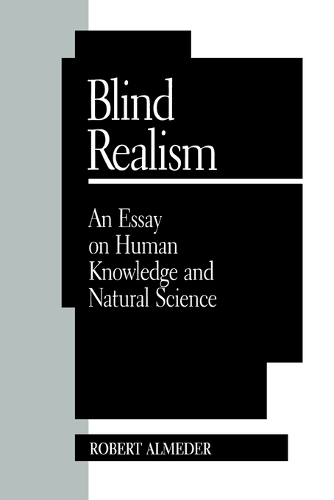
Blind Realism: An Essay on Human Knowledge and Natural Science
(Paperback)
Publishing Details
Blind Realism: An Essay on Human Knowledge and Natural Science
By (Author) Robert F. Almeder
Bloomsbury Publishing PLC
Rowman & Littlefield Publishers
21st November 1996
United States
Classifications
Tertiary Education
Non Fiction
Philosophy: epistemology and theory of knowledge
001
Physical Properties
Paperback
264
Width 149mm, Height 228mm, Spine 14mm
354g
Description
Blind Realism originated in the deeply felt conviction that the widespread acceptance of Gettier-type counterexamples to the classical definition of knowledge rests in a demonstrably erroneous understanding of the nature of human knowledge. In seeking to defend that conviction, Robert F. Almeder offers a fairly detailed and systematic picture of the nature and limits of human factual knowledge.
Reviews
...specialists in epistemology, metaphysics, and philosophy of science will find it interesting and provoking. * The Philosophical Quarterly *
A complete overhaul of knowledge, realism and natural science...Its scope is very wide, and yet bears ramifications that urge the reader to consider questions of significant depth... thought-provoking, forcefully yet meticulously argued, and packs considerable punch ...An excellent contribution to its field... * Philosophia *
...clear, well-informed, provocative... * Dialogue: Canadian Philosophical Review *
...clearly the result of years of careful thought... * Review of Metaphysics *
... thoughtful, challenging, and coherent. * The Philosophical Review *
...this technically sophisticated, yet readable, book is recommended to any academic library with a comprehensive philosophy collection. * Choice Reviews *
Author Bio
Robert F. Almeder, Professor of Philosophy at Georgia State University, has written widely on epistemology and philosophy of science, including The Philosophy of Charles S. Peirce: A Critical Introduction (Rowman & Littlefield, 1980).
